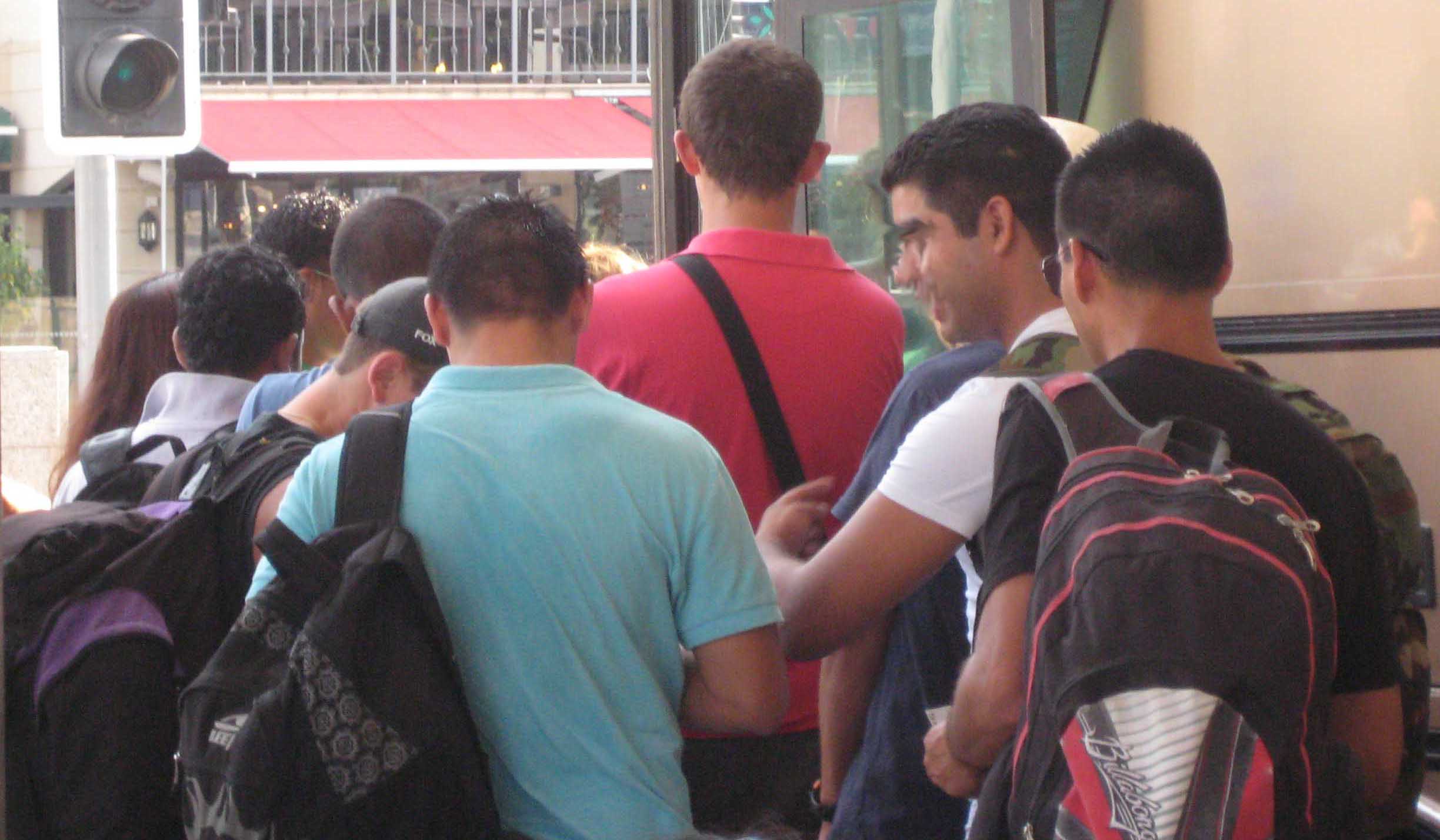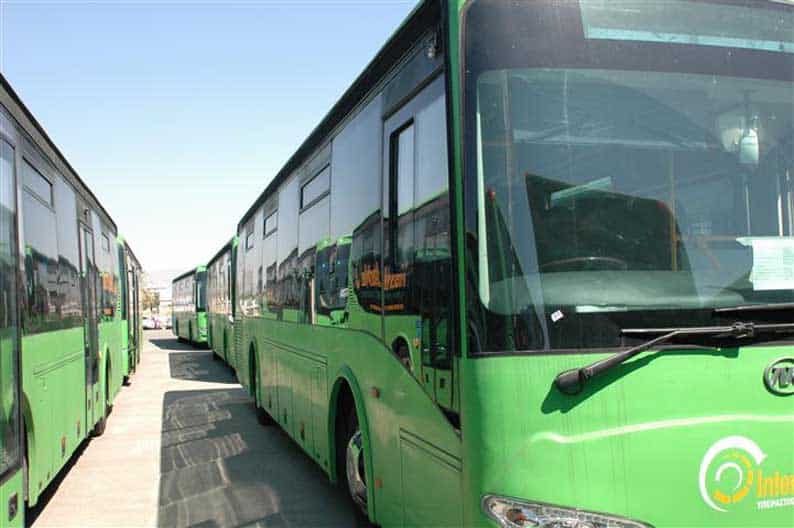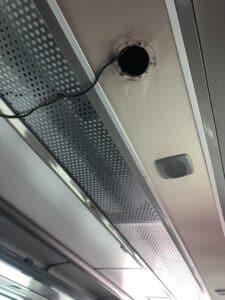They are increasingly popular but are still burdened by breakdowns and rude drivers, but it’s all about to change
An Intercity bus which randomly went up in flames, leaving trapped passengers inside resorting to jumping out of smashed windows, has brought to light long-standing concerns about the country’s public transport. Though there were no casualties, the cause was initially attributed to an electrical fault with the bus and the circumstances surrounding the fire were in fact ‘lucky’ as they avoided a far greater crisis.
For starters, the bus was at the Limassol port, which is the first and last stop for the intercity routes. There were only three passengers on board – a figure very likely to have been far higher had the bus burst into flames at Limassol’s other end, full of passengers.
It was also a stroke of luck that the fire did not begin at the highway, but rather at 6pm close to the passenger terminal, with a smaller risk of the flames burning wild shrub.
Though the incident is an isolated one, it brings to the fore a host of challenges that the company – which is becoming increasingly popular with both locals and tourists alike – is facing.
One of the greater points of attraction for the Intercity buses is their convenience in affordability, offering reduced prices for pensioners and students, as well as the fact that they go through the main arteries of each city. This all translates to increased foot traffic since the company began operating 13 years ago.
“The profile of passengers is not the same as it was back then. It is now multicultural, multilingual. There are migrants, locals and tourists – whereas before it used to be mostly migrants using them,” Fotis Kaoullas, Intercity’s general director, told the Sunday Mail.
As with every new venture – and especially public transport in Cyprus – the problems have not gone unnoticed. The company’s Facebook page is filled with comments of people asking the company to do something about the fact that the buses very often fill up too soon, leaving people stranded at bus stops and forced to wait for another bus.
Drivers have told the paper that not a day goes by without problems cropping up with the buses.
Kaoullas specified that all buses adhere to all required mechanical checkups and service requirements, but the company was painfully aware that issues do exist.
“Some weeks go by where maybe we have no issues. This week we’re going mad because high temperatures coupled with the air-conditioning means the buses are struggling to take it.”
Indeed, for one avid user, one day in August meant a run-in with two broken-down buses and passengers that had to wait for a replacement on the highway. On another occasion, the door of the bus detached, with the driver having to do makeshift DIY to keep everything intact.
Summers in particular are difficult, Kaoullas concedes. Not only are there a lot more passengers – including tourists – for which Intercity tries to adjust its timetable to include more routes, but the heat does make it harder for the buses.
“It doesn’t mean that there’s something wrong with the buses. They just can’t take it.” If drivers see that some passengers are left behind because there are no more seats available, they have strict instructions to call and request for another bus to come and do the route.
Looking ahead however, Kaoullas says that already new buses are arriving that are set to ensure the fleet will be made up of new vehicles and keep the company ahead of any problems.
“I don’t want to undermine the problems but we’re on a good road with our progress.
“We started off with 50 routes and 35 buses and now gone up to 280 routes with 100 buses. The buses are running from 5am to 10pm every day.”
One passenger who commutes daily from Limassol to Nicosia and back said “compared to five years ago, the buses now seem great. Yes, there’s occasional problems but it was really bad in the past and the buses were a lot more damaged. Seats were broken, gum was stuck everywhere and the heating during the winter was often broken.
“This summer there were a couple of times when water was leaking from the top of the bus on the passengers – I presume this was due to the AC. It was definitely unpleasant and annoying with people trying to stop it but not having any other seat to go to.”
Notably, Kaoullas is also very forthcoming with another issue that passengers often witness and experience: blatantly rude and racist behaviour from drivers.

Some routes between the cities are so busy the buses fill up and passengers have to wait for the next bus
Especially towards the migrant community living on the island, it has been a far too frequent phenomenon that drivers have screamed at individuals who asked something as innocuous as which bus stop they should get off at if they need to go to a certain place, or were perhaps unaware of what ticket to ask for.
“All drivers undergo training. We want to have professional drivers, not chauffeurs. But we are very aware that this a problem and we are actively trying to tackle it.”
Many drivers have been fired after they received three warning strikes, and the issue is compounded by the fact that there is a shortage, Kaoullas specifies.
Nonetheless, quality of service provided is important to the company and if certain drivers have to go because they’ve been rude or racist, that will be done – and has been done – no questions asked, he assured.
Many of the buses have an automated announcement stating the upcoming bus stops in Greek, English and Russian. But on the Limassol – Nicosia route at least, there are definitely stops missing.
Kaoullas specified the goal with the new bus fleet is that there will be a screen that will name the stops that can allow passengers to identify where they currently are and which stop they need to get off.
Like most things in Cyprus, buses make sense if you use them often enough – but try to navigate it yourself, it’s tricky. The bus stops are named after locations but can be tricky to decipher if you don’t know the local lingo and there’s no easy way to identify them on google maps.
“We have a designated department that deals with complaints and works towards finding solutions.”
With the new buses expected to start operating come September, time will tell how the Intercity buses will continue to plough along.
According to a recent survey by the road transport department, there were 3,761 passenger complaints filed across the island’s public transport sector last year – ten a day – compared with 2021 when 2,268 complaints were submitted. Intercity had 431 complaints.








Click here to change your cookie preferences